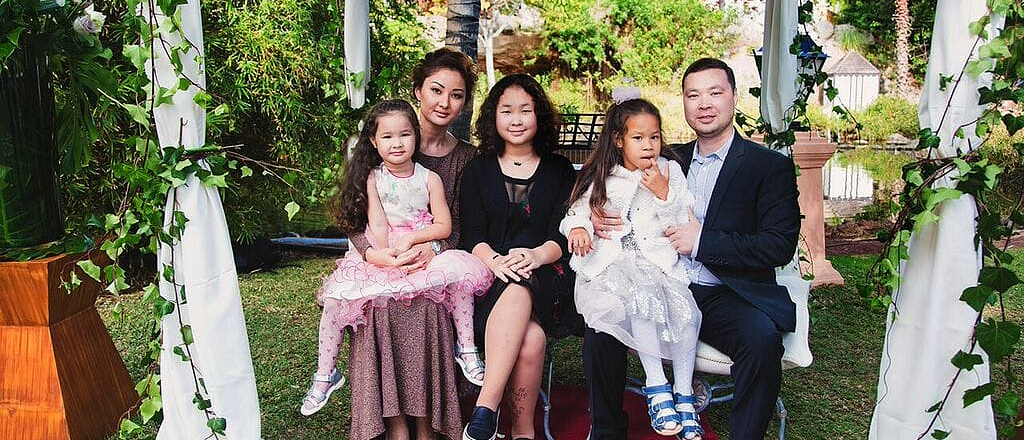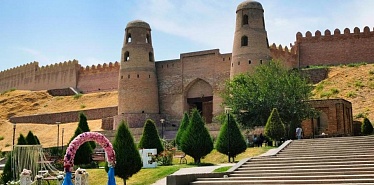Aigul Hashimzadeh, 50, from Karaganda
Living in Turkey, Istanbul
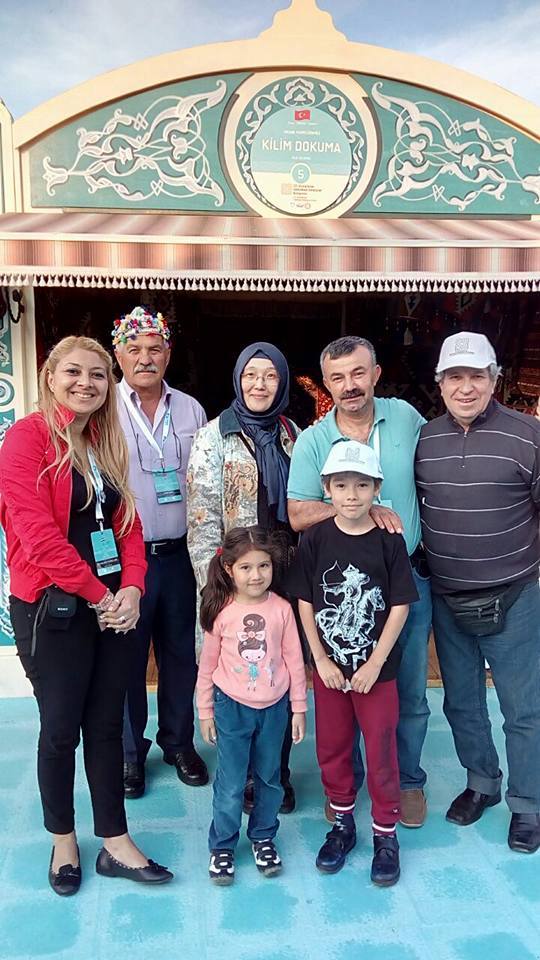
On family
I’ve been living here for 14 years. We have five children: two have university scholarships, two others go to school, while the youngest one is at home. My oldest daughter is 23, and my youngest daughter is 6.
You spend all the time by a child until s/he’s 10-11. Then they start discovering the world, they meet new friends. When they were younger we used to read books together, watch movies and visit zoo. Now my children have already grown up, they do things on their own, regulate schedules. We always look forward to weekends as we gather on holidays and weekends only.
Our children study in public institutions, although we had experience in private schools. We thought that state school documents would be easier to be legalized if we decide to return to Kazakhstan. Our house is some kind of a small school and a workshop. We have many books, computers, paper and paints everywhere. I’m engaged in felt art, I represent Kazakhstan at folk handicraft exhibitions. Therefore, we have a special atmosphere, things aren’t perfect, but we feel comfortable.
On children upbringing in Turkey
Turks really like children, and they do not hesitate to show love to strangers. They can talk with children, give a candy. Kazakhs are more cold-blooded, we don’t tend to talk with unfamiliar children. These days people are scared of their children talking with a stranger.
At the same time, our mentality is very similar to the Turkic. Finding out that I have four girls and a boy, people usually think that the boy is the youngest one. Such heir matters are very similar, even though girls are really loved here too. Girls are believed to be careful and helpful.
Large families are respected in Turkey and Kazakhstan. But due to globalization affecting both countries, many believe that large family require too much time and money.
I believe that maternal love is huge, and I equally love all my children. Many say I'm always optimistic and a little naive. But constantly dealing with the young, I answer many questions a day. Besides, I have friends, hobbies, and work. I do not have time for stress, life trivialities and vanity as the most important is to have children, to live and love.
Mentai Abugalieva, 32, from the North-Kazakhstan
Living in United Kingdom, London
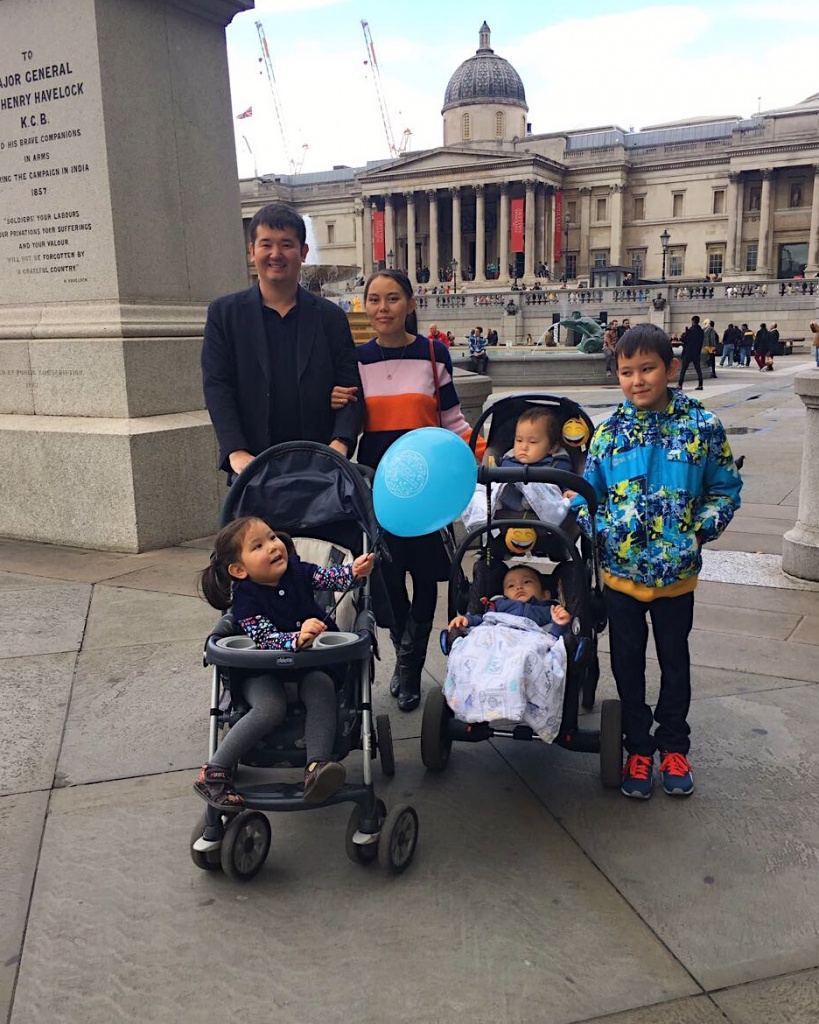
On family
My husband got a job in London in December 2012 which was a New Year's gift for us. As soon as my husband settled in a new country, my son and I joined him.
We’d always dreamed of having four children. While dating I remember being surprised that we both were willing to have 4.
Our oldest son is 10, his name is Kenzhekhan. He studies at an English school , likes to play tennis and football. Kenzhekhan perfectly copes with the duties of the elder brother, helps me to look after Sarah, Amir and Alisher, fulfills my duties around the house. Sarah is four, she’s in the nurse-group. In England children from three can visit nurse-group for free three hours a day from Monday to Friday. Just like Kenzhehan, she speaks English. The younger sons are twins, they are 20 months old. Sarah and twins were born in London. Since kindergartens are very expensive here, we decided that I would stay at home with them until they grow up.
On children upbringing in the UK
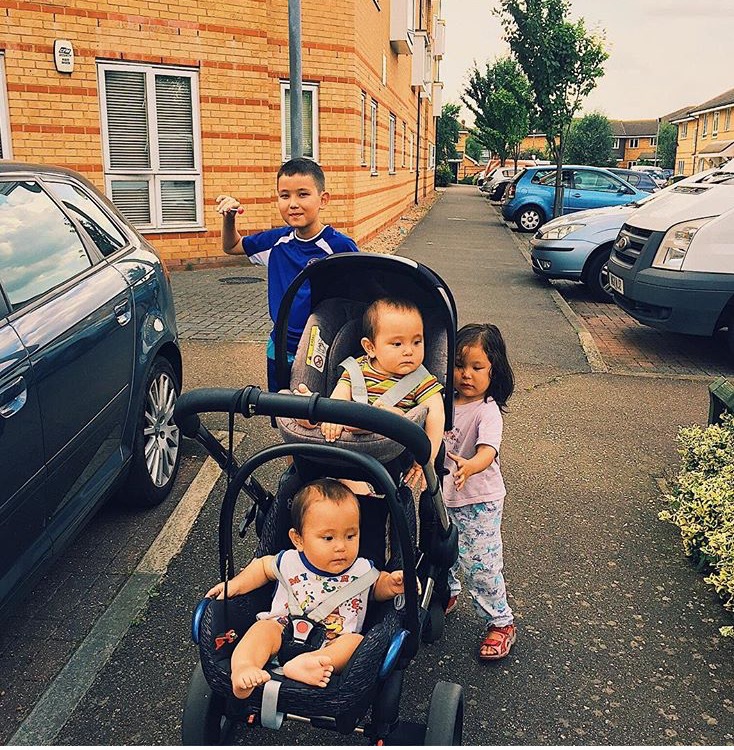
Here you’re given a request form for local child care payments at the maternity home. If parents’ income stands for less than £ 50,000, they can have state payments.
You must take care of your large family wherever you are. Local climate suits us since the temperature doesn’t drop below zero in winter, that enables you have healthy lifestyle, we walk all the year round every day.
The English prefer to have children while being mature, they don’t have more than two or three children. Therefore passers-by are always curious about us, they ask if children are mine, how old they are and whether we plan to have more.
British upbringing is different. I deem Kazakhstani children grow up earlier. Parents are strictly monitored here so many don’t shout at children, while Kazakhstanis prefer telling a child what to do. English children always have a say in something. I don’t think it’s always preferable, anyway, I try to apply both methods.
Aigerim Kokkozova, 31, from Almaty
Living in Spain, Tenerife
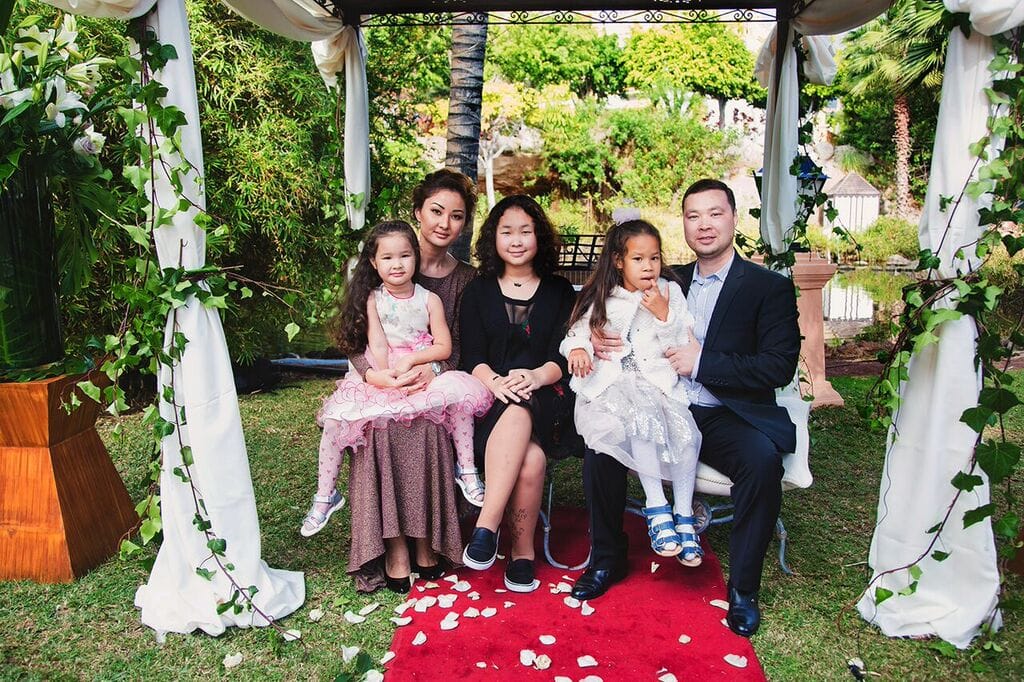
On family
We’ve moved to the Canary Islands five years ago. I have three girls, they are 14, 9 and 5 years old. The older and younger ones go to school, the middle one is looked after by a nanny.
Of course, it is difficult to combine work and three children upbringing wherever you are so I have to hire a nurse, ask friends and relatives to help me. Children start going to school at two, they start going to kindergarten from three months. Children are obliged to go to school at 2 years old.
On children upbringing in Spain
There’s no a privilege for large families, since state helps only the citizens of Spain. But the climate is favorable, it’s safe, so you can not worry about the children.
The Spaniards love their children, they tend to have large families too. They like to gather, spend time with family, and make picnics.
Spanish upbringing is different from the Kazakhstani one. We have a special respect for the elders, but there is no such thing here, sometimes children can call their mums by name.
The Spaniards are very nice, smiling and hospitable. Children rights are especially protected here. If children complain about parents shouting at them, parents can get a fine. A child can walk down the streets on his or her own. Island life is a bit different from the mainland life, but in general, women and children are always respected here.








